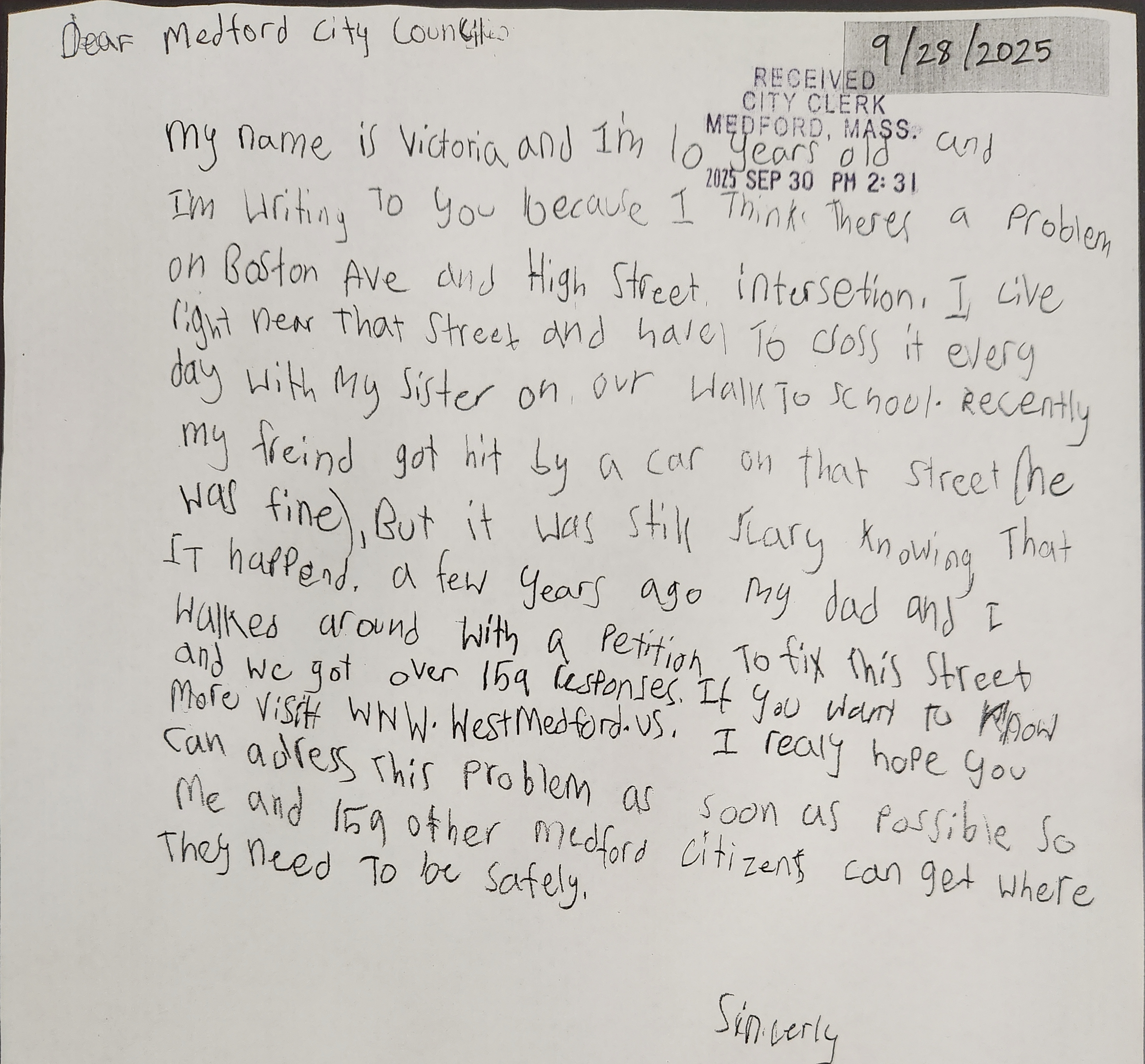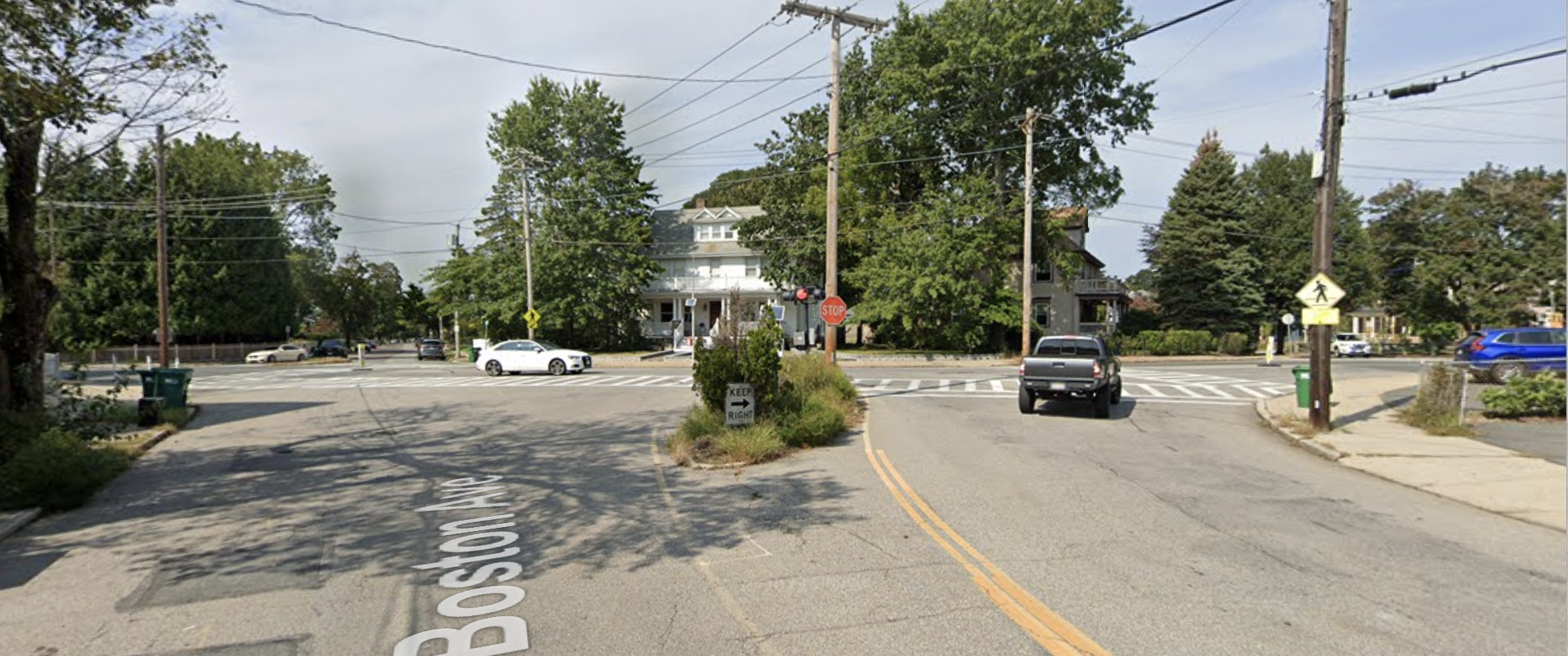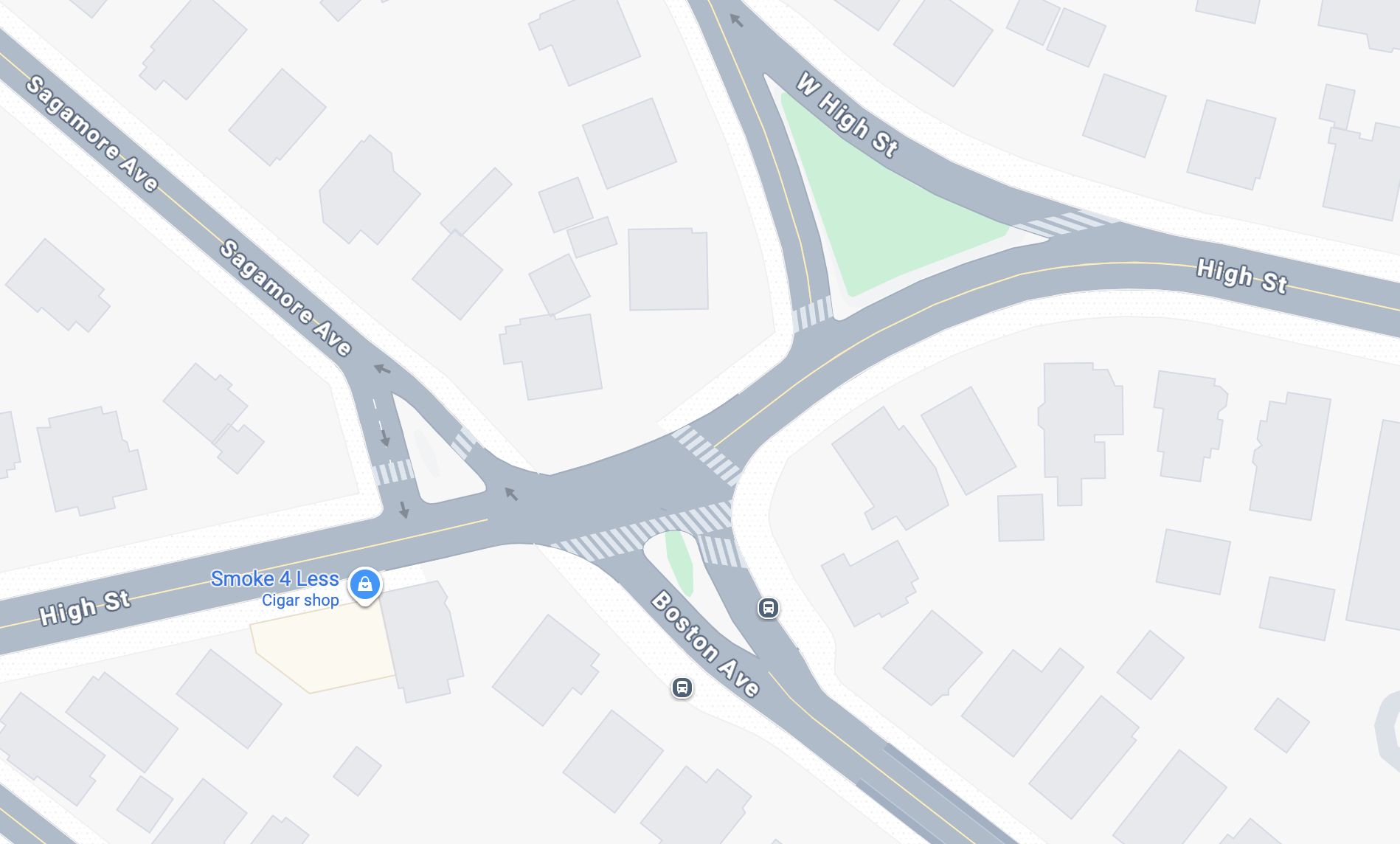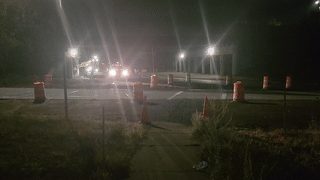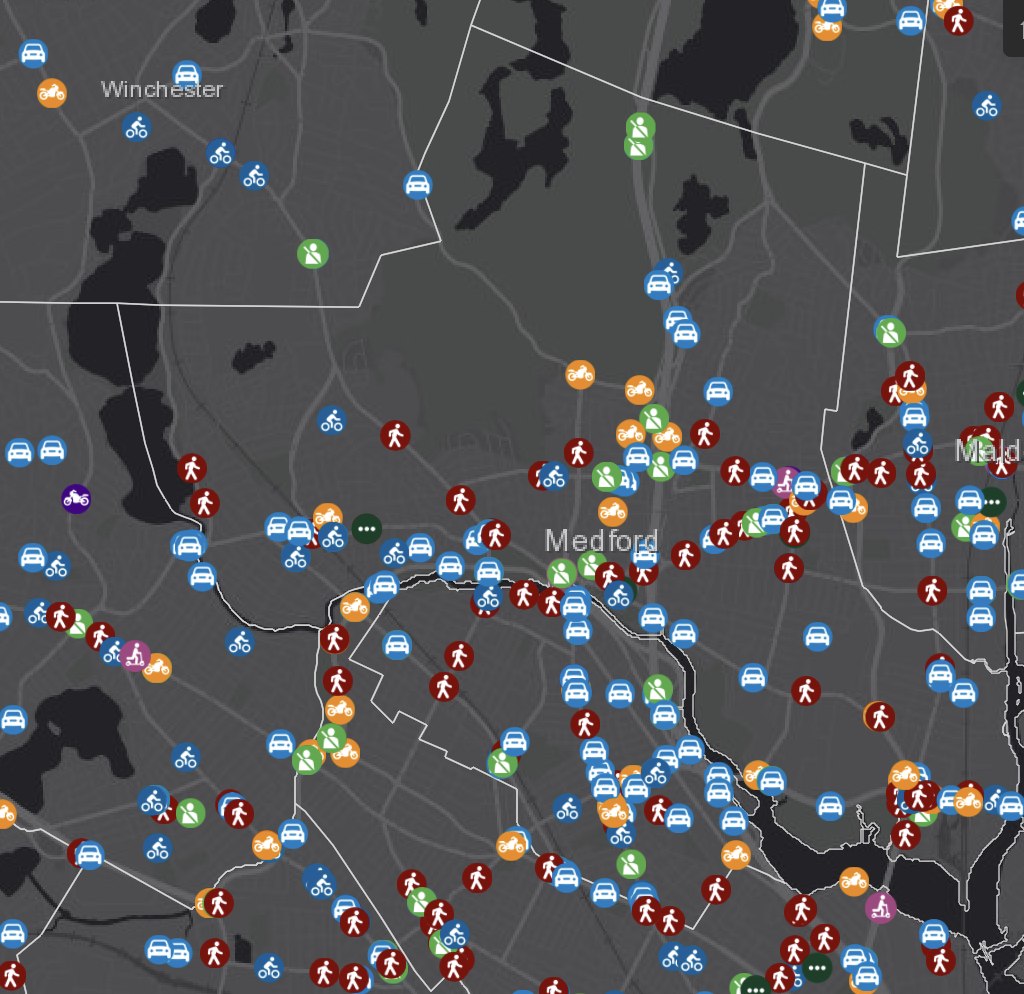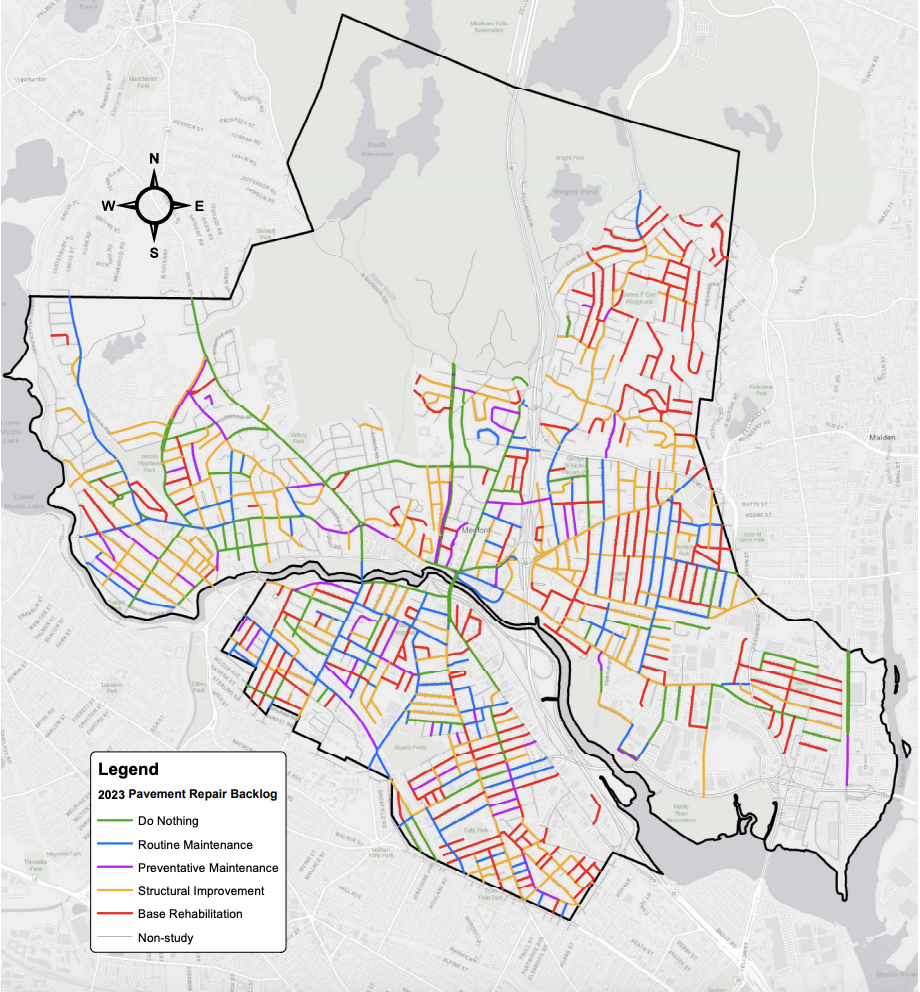Making roads better and safer
I’ve gotten a few inquiries about my blog post about private ways, mainly because residents often don’t understand the laws surrounding private ways and why these private ways are often in such bad shape. As a City Councilor, I hear a lot about road safety and maintenance in general. And while I understand way less about this than our city’s traffic engineers, I understand way more about it than the average person, so I’ll write a blog post about it.
At our most recent City Council meeting, my colleage, Councilor Lazzaro (who’s written about road safety herself), and I, sponsored a resolution that responded to a letter we’d received in September concerning the unsafe intersection at Boston Avenue and High Street.
And it’s true. That intersection is not great.
The subsequent attention brought on by the letter and the signature gathering efforts did spur City Hall to place it higher on their priority list, so our DPW will be taking some action on that. But even with the incidents described in the letter, I don’t think it’s the most problematic intersection in the city. The second-most-upvoted post ever on the Medford subreddit is a picture of the infamous Medford supercollider, and I live right next to the Salem Street Rotary, where a pedestrian died earlier this year. I’ve had a front-row seat to the subsequent construction work they’ve done to it to make it safer.
The challenge of road safety and upgrades is one of limited resources and where to apply those resources. Medford’s per capita operating budget is not great compared to other cities in MA. As a Councilor, I’m trying to increase the amount of resources the city has, but that’s a yearslong challenge. Like most departments in Medford, the DPW is understaffed, and they only have so many resources to put up when it comes to repairing and upgrading our many roads. Even as I go door to door in my efforts to get re-elected and brag that I helped pass the recent tax override that got $500,000 extra a year to the DPW for a three-person road repair crew, I have to caveat it by saying that we have a $67 million backlog in pavement repairs alone, so I can only promise that potholes will be filled at a faster rate. (Still — getting that money to the DPW is an important step forward.) The DPW has previously offered insights into the state of road repairs in Medford during Council committee meetings, in which they explained that the purpose of having this in-house crew is so that they don’t have to hire contractors to do spot repairs; they can pivot to using the in-house crew to do spot repairs and use contractors for larger-scale projects. So things should be repaired at a faster rate as the city builds up capacity.
Which roads are a priority to upgrade or repair? There are a few factors that decide this.
Incidents at those roads. If pedestrian deaths or injuries could reasonably be blamed on the safety of the road itself, the road becomes a high priority to fix. That’s one of the reasons that the Salem Street rotary is being repaired. Massachusetts is pretty good about tracking crashes that cause either serious injuries or fatalities.
Crashes that caused serious injuries in Medford. Source.
How damaged the road is. This is tracked, too, though at the local level — the pavement management report I linked earlier has maps of which roads are in the most disrepair and thus how much they need to be updated:
State of Medford’s roads circa 2023.
How frequently the road is driven on. High traffic roads are higher priority than less-used residential areas.
The number of people emailing City Hall about that road, or the number of people who have signed a petition. 159 signatures is a good method to get the city to focus resources on that road. I’m friends with a resident of South Medford who collected signatures from all his neighbors to just get a stop sign at an intersection near his home.
Whether the road is private, maintained by the city, or maintained by the state. Private ways are maintained by the residents (or National Grid, described below), city-owned roads by the city, or state-owned roads by the state. In practice, the DPW does sometimes repair private ways on a one-off basis, though they’ve been doing this less and less in recent years and they’ll usually be less of a priority than the city’s roads. This is unfortunate because residents don’t usually buy houses thinking they also own the roads and thus are obligated to maintain them. The private and public ways of roads in Medford are shown below:
The cost of repairing or upgrading the road. Putting up a stop sign is cheaper than repaving a whole road.
Whether underground pipe repairs need to be done. If there’s a faulty pipe that needs to be maintained, that often means that National Grid, a private company, will repair it, and they’ll often repave the road to boot — whether or not it’s private or city-owned. I’ve voted to approve National Grid’s work during several times this past term during Council meetings.
So the Salem Street Rotary is and has been one of the top candidates to get fixed up, and after the letter and subsequent attention from Council, it’s likely that Boston and High Street will get some much-needed upgrades to make it safer.

